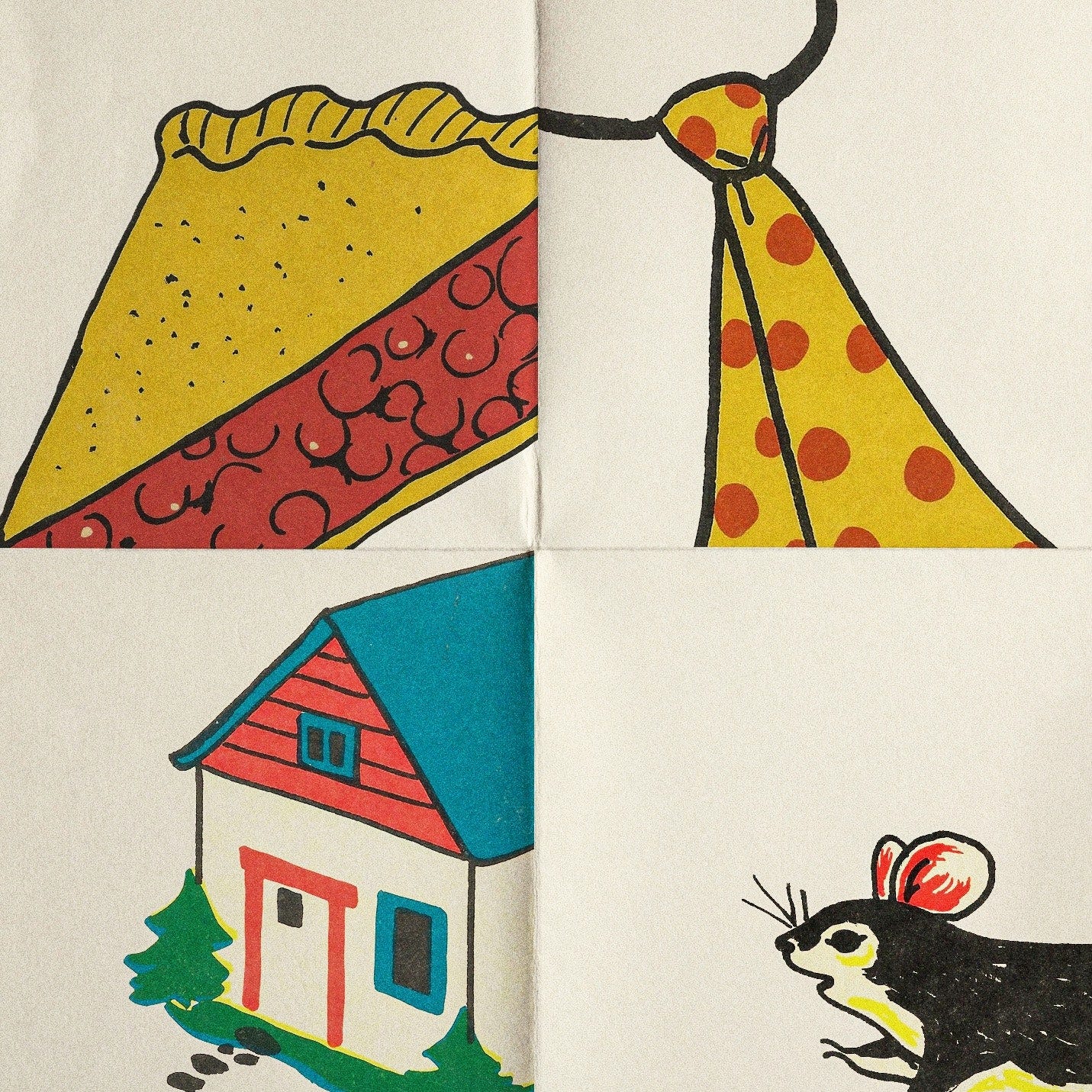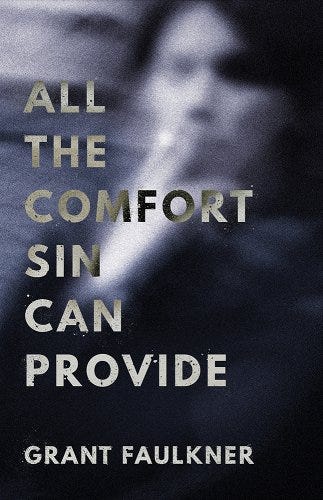Revisiting the Rhyme
Is a rhyme as annoying as a mime? Or is it about time?
Illustration by Alex Merto
“Rhyme is the most powerful, least cerebral way I know to tap into that strange attraction words in close proximity exert on one another.” —Daniel Levin Becker, “What’s Good”
Most writers want to stay away from rhyme. It’s the language of fairy tales and poems of ye’ olde style, not the lingo of high literary tastes. Rhymes aren’t cool. Rhymes are for a jaunty, superficial take on life. Rhymes are for children.
I include myself in that. I don’t go searching rhyme out. I can’t remember the last time I wrote a poem with any rhyme scheme. So it was nice to reconsider rhyme in a recent article in The New Yorker by Adam Gopnik, The Rules of Rhyme, which discussed the role of rhyme in literary history.
I reflected on the way rhyme (and wordplay in general) brings us closer to language and life. I especially liked the discussion of slant rhyme in rap music.
A slant rhyme is a type of rhyme with words that have similar, but not identical sounds. Like “worm” and “swarm,” “fate” and “save.” They sound similar, but they don't quite rhyme.
“Perfect rhyme” is the rhyme of Broadway songs and a lot of pop music. It generally presents a world that fits together, a world that jingles in syncopation. “A perfect rhyme can make a mediocre line bright,” Stephen Sondheim maintained.
But slant rhyme finds “the blind angles, the shortcuts, the secret overlaps,” says Levin Becker. Slant rhyme allows an artist to “build stunning models of invention and entente, spaces where small discords combine into larger resolutions and we see, hear, how boring it would be to live in a perfect world where like belongs only with like.”
It’s the imperfection that makes slant rhyme feel personal and purposeful.
Here’s an example from Jay Electronica:
Life is like a dice game One roll could land you in jail, or cutting cake, blowing kisses in the rice rain
“Rice rain” being a wedding, slanting off of a “dice game,” the words existing in the dance of a rhyme yet cutting against each other into new meanings (an imperfection within the supposed perfection of marriage).
English relies more on slant rhymes (see Emily Dickinson) because it’s a language without the mellifluous rhymes that romance languages are effulgent with. English is more of a language of alliteration, which rap makes full use of.
The article explores the history of rhyme—how it is a democratizing force in language and an exalting one at the same time. Rhyme is fundamentally “an urge to make the shimmering sensual surface of language matter, to turn churches into clubs and clubs back into broad churches,” Gopnik says.
Rhyme can be a form of incantation at the same time it can be simple silly fun. And who can argue with simple silly fun?
Because let’s ponder what artists say about rhymes
“I don't write, I build a rhyme.”
— Kool Moe Dee
“I mean, when it’s time to rhyme, rhyme, I can get down for mine.”
— Missy Elliot
“Making words rhyme for a living is one of the great joys of my life.”
— Lin-Manuel Miranda
“Sometimes the truth don't rhyme.”
— Chance the Rapper
“Tell the truth and make it rhyme.”
— John Lennon
“I think it's interesting that cologne rhymes with alone.”
— Demetri Martin
“Once in awhile you have a thought, and you rhyme it.”
— Howard Nemerov
“The first poems I knew were nursery rhymes, and before I could read them for myself, I had come to love just the words of them, the words alone.”
— Dylan Thomas
“Let’s be clear, Dolly Parton is a rapper. Somewhere before all the country, I don't know what happens up there in the mountains when you're growing up, but she has been spitting rhymes for a very long time—50 years I'd say.”
— Queen Latifah
Because a favorite word: sidle
Sidle is an onomatopoeia, a word that sounds like what it means: To move sideways. To advance in an unobtrusive, furtive, or coy way.
To sidle is to slither, to glide, to sneak. It’s like the word sidewind, except quieter, I think, sneakier.
You sidle to approach someone who intimidates you. You sidle to exit a party unnoticed. I sidled through several years of my life in my 20s.
Because why not go to Oaxaca with me
I'm headed out on a writing retreat/adventure in Oaxaca, Mexico in December, and I'd love for you to join me.
Wayfaring Writers is taking a group of writers to Oaxaca December 4-13, 2022, for ten days of inspiration, community, food and wine (including chocolate and mezcal tasting and cricket eating)—and the opportunity to talk writing, do some writing, and be around fun and interesting writers.
I'll be there offering talks and support for writers. I love retreats like this because of the unexpected conversations I have with other writers. It’s the meandering conversations at the end of a dinner or on an early morning walk that seem to matter the most.
See more at Wayfaring Writers.
Because a haiku
The frog jumped After taking a dump With a harumph
Because I think you might enjoy my podcast
I loved talking with Charmaine Wilkerson because I'm intrigued by the way she writes with omission—as a craft technique and as an existential theme. We all exist amidst omitted stories, omitted selves.
It was also especially gratifying to read her novel because we published a couple of her shorts in 100 Word Story.
“I have written passages that were quite spare and even cryptic,” she says. “I believe that a scene can carry sufficient information and emotional weight for the reader, even without all the particulars. Omission has presence, too.”
That’s the topic of her new novel Black Cake: a mother leaves a slice of her famous Black Cake for her two children after she dies, but she also leaves some stories to reckon with as well. Listen for more.
All the Comfort Sin Can Provide
If you like this newsletter, please consider checking out my recently released collection of short stories, All the Comfort Sin Can Provide.
Lidia Yuknavitch said:
“Somewhere between sinister and gleeful the characters in Grant Faulkner’s story collection All the Comfort Sin Can Provide blow open pleasure—guilty pleasure, unapologetic pleasure, accidental pleasure, repressed pleasure.”
More about me: I am the executive director of National Novel Writing Month and the co-founder of 100 Word Story. I am the author of Pep Talks for Writers: 52 Insights and Actions to Boost Your Creative Mojo and the co-host of the podcast Write-minded. My essays on creative writing have appeared in The New York Times, Poets & Writers, Lit Hub, Writer’s Digest, and The Writer.
For more, go to grantfaulkner.com, or follow me on Twitter or Instagram at @grantfaulkner.






I love a clever rhyme
the best line
a good word
both read and heard.